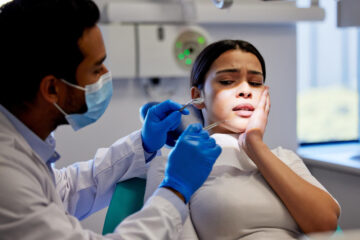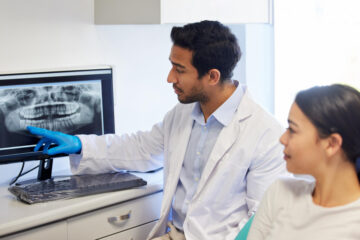Maintaining good oral hygiene is crucial to keeping your teeth and gums healthy. The most important tool for maintaining oral hygiene is the ‘toothbrush’. Hopefully everyone has at least one! All kidding aside, with a plethora of options on the market, choosing the right toothbrush can be overwhelming. In this guide, we will help you navigate through the
different types of toothbrushes and give you some insight into how to choose the best one for your dental needs. Let’s get started.
Soft vs. ultra-soft brushes:
Why is it called soft? The handle should definitely not be soft. So what does it refer to? Yes, the bristles. When a product is categorised, it is categorised into at least three categories, it is divided into soft, medium and hard bristles. Dentists generally recommend using soft or
ultra-soft bristles to prevent damage to your teeth and gums. Here’s a breakdown of the two:
Soft bristles: Soft-bristled toothbrushes are defined as gentle and smooth. They clean your teeth effectively without causing irritation or damage. If you have sensitive gums or teeth, or if you tend to brush too hard, a soft-bristled toothbrush is the best choice.
Ultra-soft bristles: Where does ultra-soft bristle come from? It’s more delicate than the soft bristles. Ultra-soft brushes are even gentler and are ideal for people with extremely sensitive gums or those recovering from oral surgery. These brushes are designed to provide a gentle cleaning experience while protecting delicate oral tissues.
Motorized brushes:
Electric or motorized toothbrushes have become increasingly popular in recent years. Much more effective and less work! Here are some scenarios where power toothbrushes can be
beneficial:
For people with limited mobility:
Motorized toothbrushes are a great option for people with limited mobility, such as those with arthritis or disabilities, as they require less manual dexterity and effort to use effectively.
Improved plaque removal:
Studies have shown that electric toothbrushes are more effective at removing plaque than manual toothbrushes. If you struggle with plaque build-up or gum disease, a power toothbrush can help you achieve better oral hygiene.
Built-in timers:
Many power toothbrushes have built-in timers to ensure you brush for the recommended two minutes. This feature can be especially helpful for children or people who tend to rush through their brushing routine.
So when you are choosing a power toothbrush, look for features such as pressure sensors, multiple brushing modes and interchangeable brush heads to customise your brushing
experience.
Tips for choosing the right toothbrush:
Size and shape: Choose a toothbrush head that fits comfortably in your mouth and allows you to reach all areas of your teeth. A compact head is ideal for brushing hard-to-reach areas, such as the back molars.
Bristle texture: Choose soft or ultra-soft bristles to prevent damage to your teeth and gums. Hard bristles can wear away tooth enamel and cause gum recession over time.
Quality and brand: Invest in a reputable toothbrush brand that is known for quality and durability. Look for toothbrushes with the American Dental Association (ADA) Seal of
Approval to ensure they meet the necessary standards for oral health.
Replace regularly: Replace your toothbrush every three to four months, or sooner if the
bristles show signs of wear. A worn toothbrush is less effective at cleaning your teeth and can harbour bacteria.
In conclusion, choosing the right toothbrush is essential to maintaining good oral health. Whether you prefer a manual, soft-bristled toothbrush or a high-tech motorised brush,
prioritise features that meet your specific oral care needs. By choosing the right toothbrush and practising proper brushing techniques, you can keep your smile bright and your gums healthy for years to come.





1 Comment
Interdental cleaning devices: Enhancing the health of your smile - houseofsmiles.co · December 9, 2024 at 5:02 am
[…] theories about a better understanding. Interdental cleaning the spaces between your teeth where a toothbrush cannot reach effectively. While brushing your teeth twice a day is crucial, it is not enough to […]
Comments are closed.